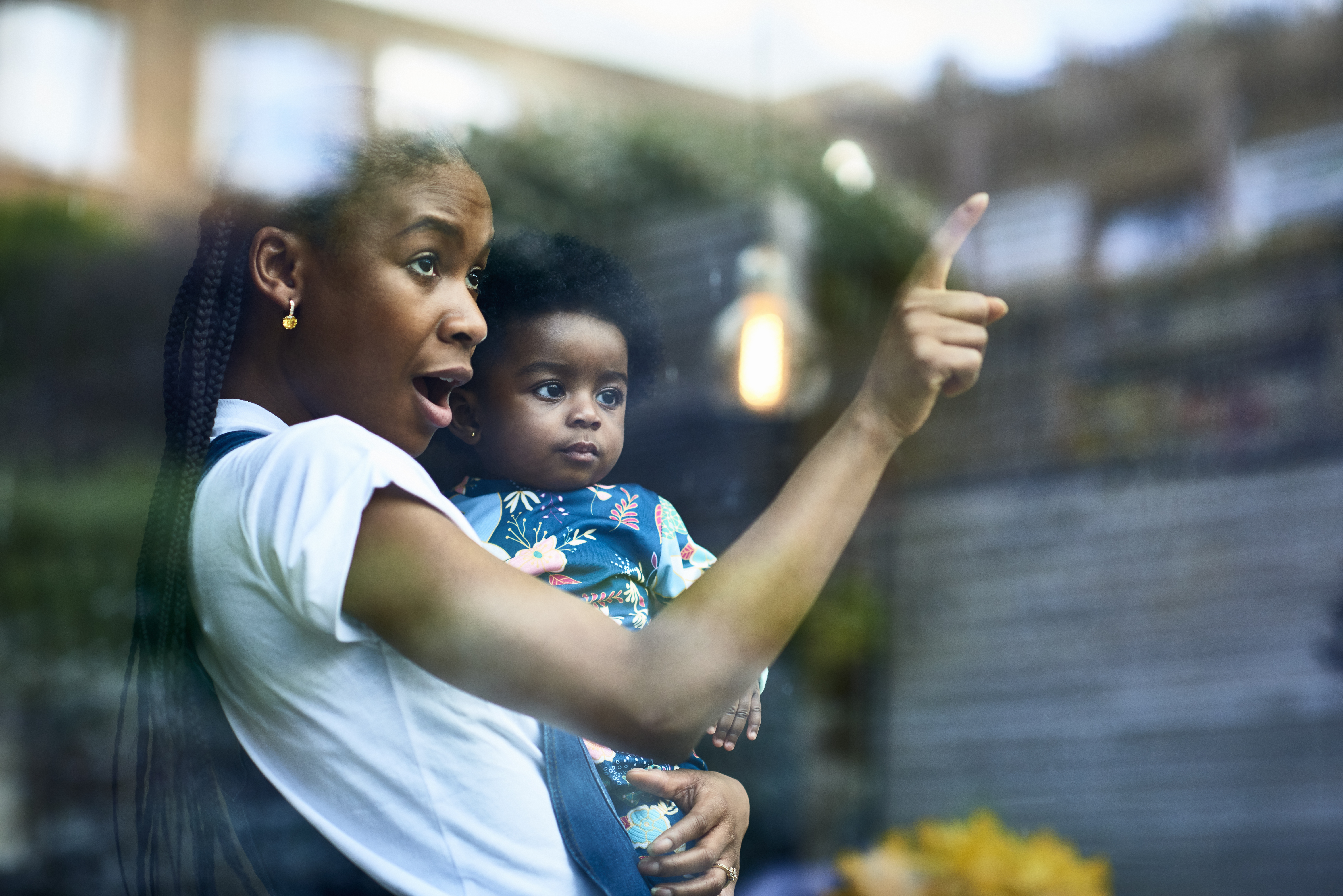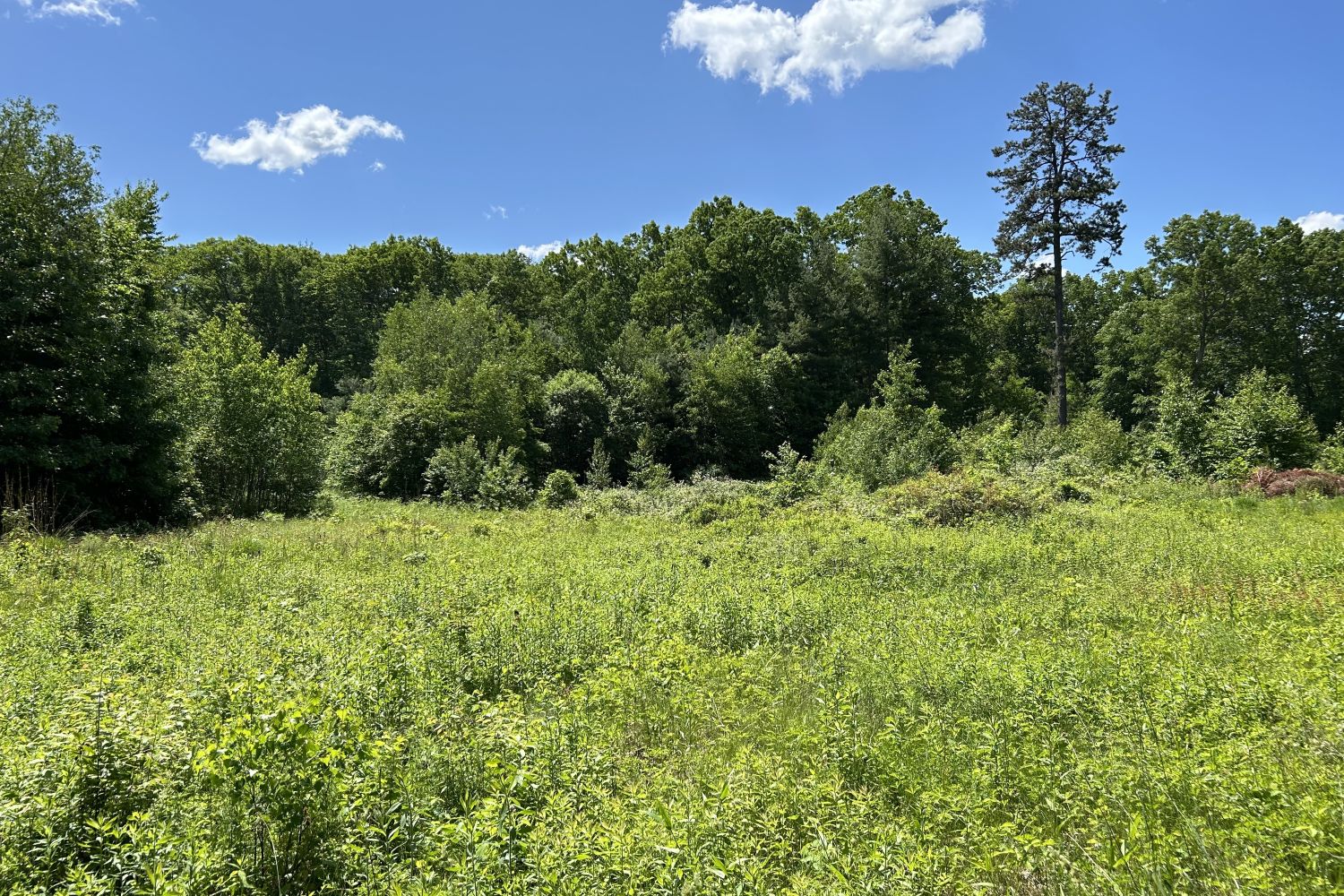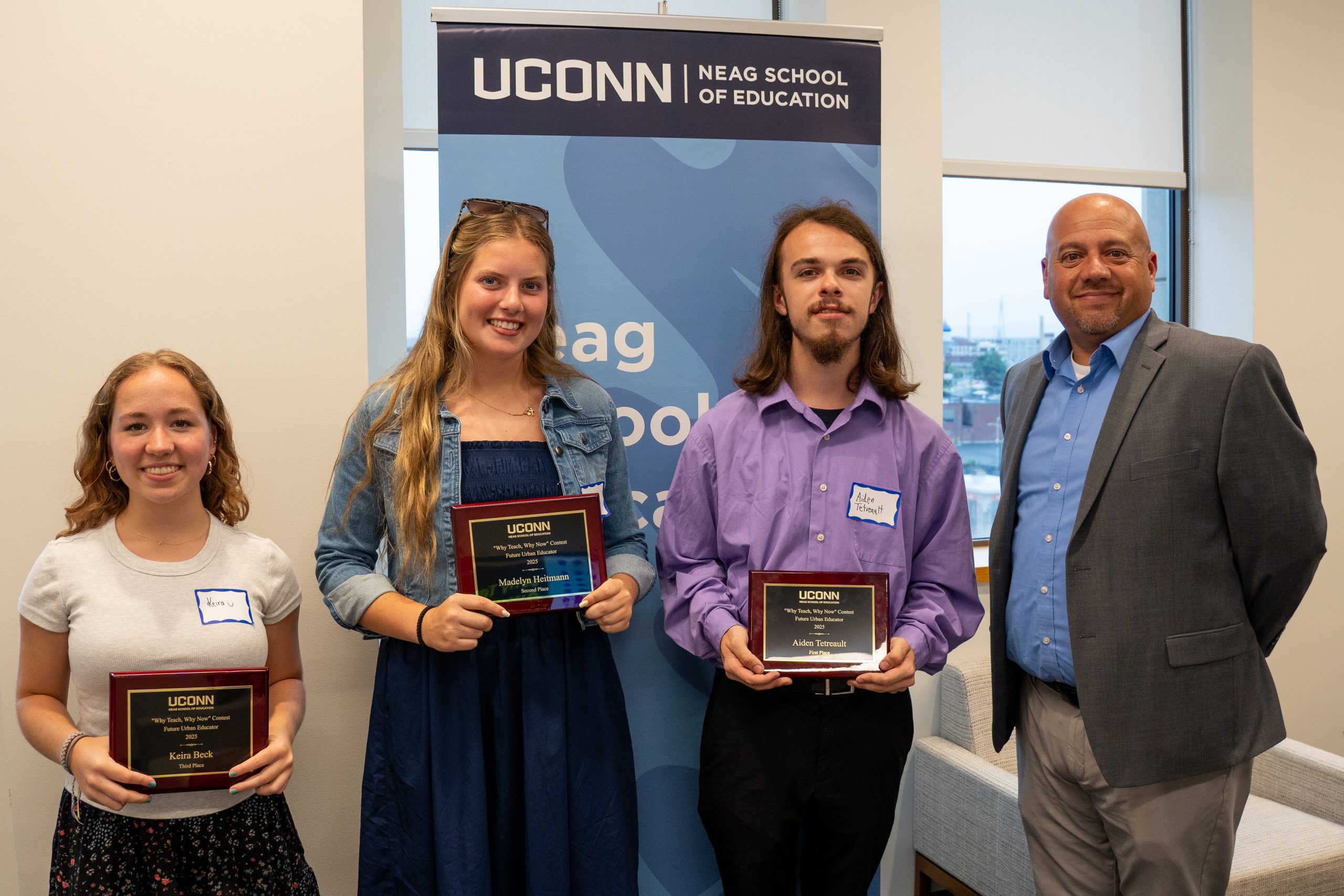Giving birth can be a life or death event, even in the contemporary USA. The risks are even higher for Black mothers, and UConn researcher Haile Eshe Cole wants to understand why that it is, and how to change it. Cole recently joined UConn’s Department of Anthropology with a joint appointment with the Africana Studies Institute, and is a member of the newly established health disparities cluster. She brings expertise and experience not only as a researcher, but also as a part of the community she is researching.
“Health disparities aren’t just this thing that popped up a couple of years ago,” she says. “It’s not about health care access only. There are so many issues intersecting to make those disparities happen.”
There are many factors at play, but for maternal care, the heart of the issue is doubt. In a medical situation, doubt can be deadly.
“It’s so easy to resort back to traditional narratives,” Cole says. “In terms of maternal health, people start asking about the mother, ‘Did they get prenatal care, and are they smoking, and are they drinking, and are they exercising?’ We fall back on that really easy narrative instead of really trying to dig down into the root cause of the issue. The root of that problem is that Black birthing folks are not heard. They will say something doesn’t feel right; they will be doubted. The perception will be that they’re overreacting.”
The topic came to the forefront recently, when Serena Williams told her own story of being doubted by healthcare professionals and nearly losing her life following the complicated birth of her daughter.
“There are these huge disparities around race, especially for Black women in the US specifically,” Cole says. “There have been studies on immigration where, if you look at immigration status, a newly immigrated black woman has birth outcomes that are closer actually to a white woman. However, after one generation of living in this country, the outcomes begin to decline. There is something really specific about being a Black birthing person here in the US.”
Cole notes that in the US, Black women are three-to-four times more likely to die of pregnancy-related complications than their white counterparts, and that Black babies are two-and-a-half times more likely to die before their first birthday. Besides doubt, Black women have the cards stacked against them in other ways.
“A lot of the research now is supporting that it is racism-induced stress that is causing these outcomes,” Cole says. “The research is looking at racism over the life course and how that is effecting wellness and the allostatic load.”
“Allostatic load” is essentially wear and tear on the body, Cole says. “There is also the concept of weathering. The incessant experience of racism day to day weathers the body for so long so that when it comes to caring for your child, these negative impacts on the body impact the outcome.”
Cole began her research working with mass incarceration and rehabilitation programs that incorporated the arts in prisons.
“As I did more research I was really drawn to what was happening to mothers and children, and women who were being incarcerated. My master’s thesis was actually on baby bonding programs and alternatives to incarceration for mothers and kids. That started this journey with an interest in motherhood and children. Not only that, I had my own personal journey of being a new mom, but I was raised by a single mother and we had our own experiences and struggles that we had navigated. It all came together with this focus on motherhood.”
Cole began organizing with a community of mothers of color supporting one another in her hometown of Austin, Texas. In devoting so much time and passion to the project, her research interests shifted as well.
“We were doing work in the community to support particularly Black and Latino women,” she says. “We lobbied at the capitol successfully to get Medicaid to cover midwifery in Texas, and we were training Black and brown women to give doula support for free to women. We had the dream of starting a free clinic for Black and brown women so we were working on that which actually happened and it is still up and running now.”
As a birth doula herself, Cole has helped students raise money so they can get training as well. She says the idea is to have someone to support and advocate for mothers in hopes of improving health outcomes. She hopes to establish a similar program at UConn because, she says, her work is not just research, it is a response to seeing and experiencing the impacts of people’s lived realities.
Though her research can be emotionally taxing, Cole says shifting to community-based solutions is rewarding.
“Shifting my research toward healing justice is reflective of my personal shift. Systemic change is really hard to do, but I still have hopes for that and it will take time,” she says. “I’ve changed my approach to community-based responses because Black birthing people are having babies and trying to survive right now. We have these long-term goals, too. I don’t think we should completely give up on that aspect, but I am more interested in what is happening now because it’s an urgent need. It will take time to transform health care delivery.”
If you are interested in getting involved in Cole’s research and community-based response efforts, you can connect with her via email or consider enrolling in her spring 2021 course AFRA/ANTH 3320 Race, Culture, and Reproductive Health.



